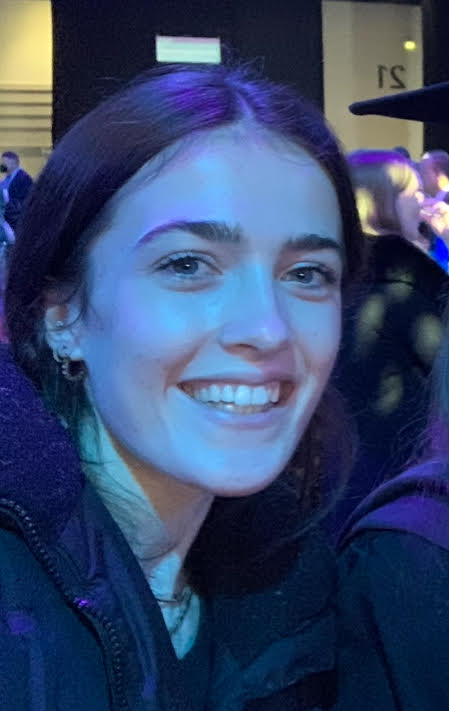As we start the new academic year embarking on, in-the-midst of, or concluding our academic careers at City, legal networking events begin and continue to populate our inboxes, feeds and calendars as the working world anticipates.
Harvard sociologist Mark Granovetter’s findings and long respected analysis of social networking has some great teachings and implications for our career pursuits. As does the work of Yale alumni and author Professor Marissa King, playwright and accidental social theorist Frigyes Karinthy, profound Yale social psychologist Stanley Milgram and Cornell academic Dr Duncan Watts.
Whether you are a networking novice or an expert social mechanic, there is plenty of evidence to suggest we all benefit multitudinously from the continual development of our social skills which have the opportunity to be nurtured and fine tuned at the plethora of legal networking events coming our way.

In preparation for these events I’ve put together a few tips to help get a head start in networking this academic year with academic research grounded in sociological and social psychological theory.
Don’t underestimate your weak ties: The ‘Strength of Weak Ties’ theory
In 1973, Harvard Sociology PhD student Mark Granovetter published his seminal thesis ‘The Strength of Weak Ties’ which had a profound impact on modern understandings of social networking; and the unknown significance, you guessed it, our weakest ties have upon our broader lives and career prospects.
The study found that the ‘weakest’ relationships of his participants, characterised by their little: time spent together, emotional intensity, low intimacy and few reciprocal services attracted higher rates of social bridging, novel information flow and job opportunities relative to their ‘stronger’ ties.
The fifty years since Granovetter’s findings have heralded many advances: the dawn of the internet in 1998, LinkedIn (2002), Facebook (2004), Instagram (2010), Zoom (2011), and TikTok (2016) which has led to the broadening of our social networks with valuably varying relationship strength.
In application: Don’t underestimate your weak ties! Alleviate the pressure of making instantaneous strong connections at events by placing value on all the connections you’ll make and appreciating that each will be of varying strength.You never know what career prospects might come from your weakest ties!
Quality over quantity: ‘Social Chemistry – Decoding the Patterns of Human Connection’
Social networking research specialist, Professor of Management and Dynamics, and author of ‘Social Chemistry: Decoding the Patterns of Human Connection’ Marissa King, has coined three types of networkers: ‘expansionists’, ‘brokers’ and ‘conveners’. Each distinct from the next in their approach to networking quantity and quality of connection. Each also come with their own benefits.
She defines ‘expansionists’ as taking an optimistic approach to quantity based networking similar to that of Granovetter in his identification of the practical value of weak ties in initiating job opportunities; placing less value on the relative strength of each tie.

By contrast, ‘brokers’ connect with a diverse range of social circles sometimes acting as a bridge between different social worlds, typically holding each individuals expertise in high regard. Although high maintenance, its social style has great value to the individual and all those a part of their network.
The most insular of the three, ’conveners’ tend to invest in the interpersonal bonds with their existing relationships heavily, which within a team has the benefit of building strong cohesion and trust, but in approaching networking events can limit their scope in fostering new relationships.
In application: Quality over quantity! Although taking an ‘expansionist’ approach invites lots of valuable ‘weak ties’, don’t underestimate the power and value of the ‘broker’ or ‘convener’ approaches to networking. If you’re a naturally more introverted person perhaps these less expansive approaches will make the networking experience more attractive!
Bridging contacts: Closer than we think – the ‘Six Degrees of Separation’ Theory

The six degrees of separation theory speculates that any two people on the planet are never further than six connections away from one another. Although the concept was founded by the Hungarian playwright Frigyes Karinthy in the 1930s for his short story ‘Chains’, the notion captivated social and mathematical academics across the globe some of whom have tested the theory with scientific research.
In practice, this theory could have a profound impact on the way we conceptualise networking and the relative social distance standing between us and the bridging contacts that could unlock opportunities fulfilling our career goals.
In 1967 controversial Yale professor of social psychology Stanley Milgram famously trialed the hypothesis on near 200 participants in the US, instructing each to mail a parcel to a targeted individual in another state without knowledge of the contact’s final address. Milgram recorded the parcel’s journeys finding that, based on the near 50 parcels that succeeded in reaching their final address, on average it took them parcels between 5 and 7 intermediaries before they successfully reached the final target.
Although Milgram’s experiment showed a 30% success rate, the experiment was repeated in 2001 by Dr Duncan Watts at Cornell University with a much larger participant group of nearly 60,000 people across 166 countries where Watts replaced the parcels with emails and found similar positive effect. For the successful emails chains that reached their ultimate target, it took an average of 5-6 intermediaries to complete the journey.
In application: Bridging contacts between us and our career goals are closer than we think! Since the late 60s and 00s when the ‘six degrees of separation’ theory began to be tested, our society has become increasingly digitalised which has eliminated networking barriers and increased our accessibility to communications technology, presumably making us closer to essential contacts than previous legal academic cohorts ever before. Test the theory and make use of the networking technologies and events available to us at City! You never know where they might take you!
City resources
Keep an eye on the weekly newsletter emailed out on Fridays and the Lawbore Events Calendar for inspiration for your next opportunity to network.
Happy networking!
Huge thanks to Frankie for putting together this helpful explainer on key networking theories across the decades. Some really pertinent takeaways that we can all apply to our future practice.

Frankie Reffell is a first year GE-LLB student currently exploring careers in IP and/or Art Law. She is a member of the 2024-25 Lawbore Journalist Team. Here’s a bit about her!
Before City, I studied Sociology at Durham University where I focused my bachelors on social policy and themes within modern democracy in the digital age. Outside of the classroom I enjoy attending lectures hosted in London on various topics I find interesting typically within art, women’s history, law in various contexts, photography, the environment, business, literature and fashion.
As part of this year’s Lawbore team I intend to contribute articles covering the many incredible events listed on the Future Lawyer site, profiles in conversation with lawyers operating within the arts, book reviews and short features on topics within IP and Art Law.

